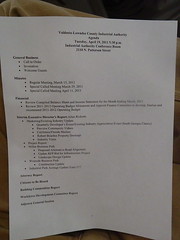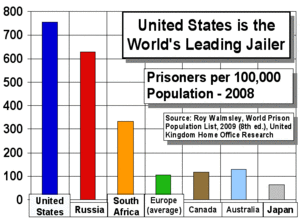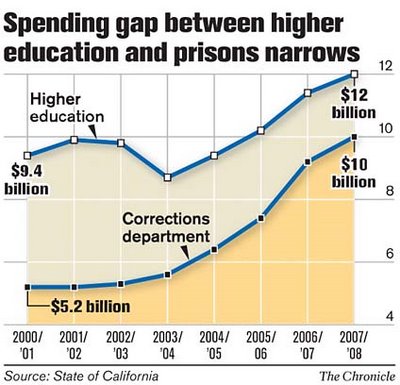Andrew Jones wrote for Raw Story yesterday, Private prison company offers to buy 48 states’ prisons
In exchange for keeping at least a 90 percent occupancy rate, the private prison company Corrections Corporation of America (CCA) has sent a letter to 48 states offering to manage their prisons for theWhat does CCA want in return?low price of $250 million per year, according to a letter obtained by the Huffington Post.
The company says it’s a way for states to help manage their current budget crisis. “We believe this comes at a timely and helpful juncture and hope you will share our belief in the benefits of the purchase-and-manage model,” CCA chief corrections officer Harley Lappin said in the letter.
…a 20-year management contract, plus an assurance that the prison would remain at least 90 percent full….So if a state, such as Georgia, was thinking of sentencing reform, or of getting on with decriminalizing drugs, either would become quite difficult after signing such contracts.
Here’s CCA’s offer letter, complete with a blank to fill in for the state.
Maybe CCA is realizing that it’s coming to the end of its rope on its old tricks, such as these, pointed out by Chris Kirkham in HufffintongPost yesterday, Continue reading














